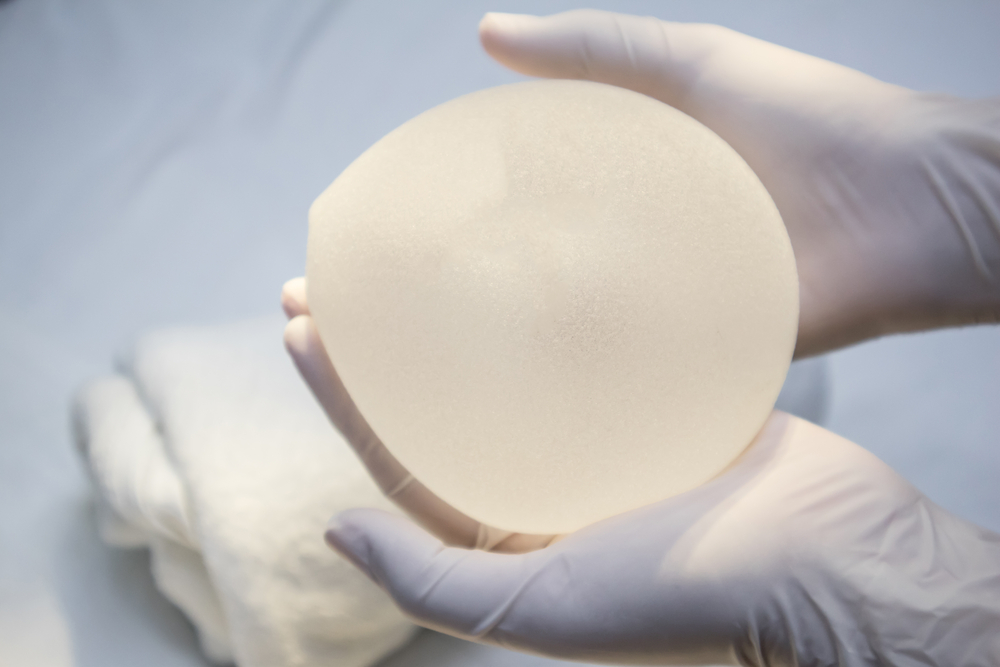Breast Implants Linked to a Rare Cancer: How Big Is the Risk?

Women with breast implants are at increased risk of developing a rare type of cancer of the immune system, but the overall chance of getting this cancer from implants is very low, according to a new study from the Netherlands.
The study provides one of the most precise estimates to date of the risk for women with breast implants of developing this cancer, which is called anaplastic large cell lymphoma (ALCL), the researchers said. ALCL is not breast cancer; rather, it is a type of lymphoma, which is a cancer of the immune system cells. When it occurs in women with breast implants, the cancer typically appears in the scar tissue around the implant.
In the new study, the researchers estimated that, for women who get breast implants, the risk of developing ALCL in the breast is 1 in 35,000 at age 50, 1 in 12,000 at age 70, and 1 in 7,000 at age 75.
Although the risk is low, the researchers recommended that women considering breast implants for cosmetic or reconstructive purposes should be counseled about the risk of ALCL, as well as the symptoms of the disease. [7 Plastic Surgery Myths Revealed]
Breast implants and cancer
For years, researchers have been aware of a link between breast implants and the development of ALCL in the breast. But estimates of the risk of this happening have varied widely. The new study was better able to estimate the risk because it was larger and used more rigorous methods than earlier studies, the researchers said.
The researchers, from VU University Medical Center in Amsterdam, used a nationwide Dutch pathology registry to identify all patients in the country diagnosed with non-Hodgkin lymphoma, which includes ALCL, of the breast between 1990 and 2016.
The researchers first examined whether breast implants do indeed increase the risk of developing ALCL. But since ALCL is a very rare disease, it was difficult to look at simply the chances of developing ALCL in people with and without implants. Instead, the researchers looked at the question from the flip side, starting with women with ALCL in their breasts, and then looking at the rates of breast implants in these women. They then compared this to the rate of implants in women who had developed other types of lymphomas in their breast.
Sign up for the Live Science daily newsletter now
Get the world’s most fascinating discoveries delivered straight to your inbox.
They found that, of the 43 patients with ALCL in the breast, 32 had breast implants. For comparison, just 1 of 146 women with other lymphomas of the breast had breast implants. That means that women with ALCL in the breast were about 421 times more likely to have breast implants than women with other lymphomas of the breast. This strong link between breast implants and ALCL likely suggests that the implants play a role in causing the cancer, the researchers said.
Still, this statistic doesn't tell women with breast implants what their overall chances are of developing the disease in their lifetime. To calculate this, the researchers also estimated the rates of breast implants in the Dutch population, using records of 3,000 X-rays (which can show breast implants), along with other information.
The researchers determined that about 3 percent of Dutch women have breast implants. They estimated that, for every 7,000 women who get breast implants, one woman will develop ALCL in the breast by age 75.
The study also found that, in cases in which there was information about the type of breast implant used, 82 percent of women with ALCL had textured implants (as opposed to implants with a smooth surface.) That's much higher than would be expected, since only about 45 percent of breast implants sold in the Netherlands are textured, the researchers said. This finding adds to earlier evidence suggesting that textured implants come with a greater risk of ALCL, compared with other types of implants.
How do implants cause cancer?
Exactly how breast implants might cause ALCL is not known. It's possible that chronic inflammation around the breast — triggered either by the implant itself or bacteria that adhere to the surface of the implant — may play a role, the researchers said.
Patients with ALCL in the breast usually fare well if the disease is caught early. Of the 32 patients with ALCL tied to breast implants in the study, 90 percent were in complete remission (meaning they had no signs of cancer) after about three years.
For this reason, it's important that women considering breast implants be aware of the symptoms of ALCL, the researcher said. Symptoms can include persistent swelling or pain in the area of the breast implant, according to the FDA. These symptoms often occur many years or decades after the breast implant surgery.
The study was published in the Jan. 4 issue of the journal JAMA Oncology.
Original article on Live Science.

Rachael is a Live Science contributor, and was a former channel editor and senior writer for Live Science between 2010 and 2022. She has a master's degree in journalism from New York University's Science, Health and Environmental Reporting Program. She also holds a B.S. in molecular biology and an M.S. in biology from the University of California, San Diego. Her work has appeared in Scienceline, The Washington Post and Scientific American.










